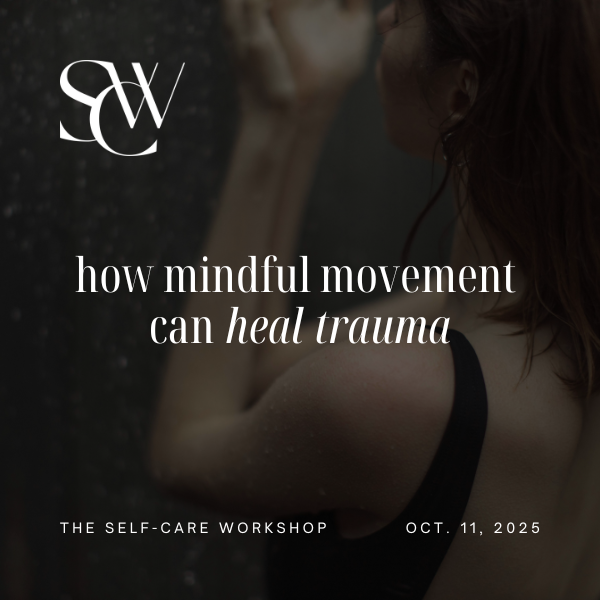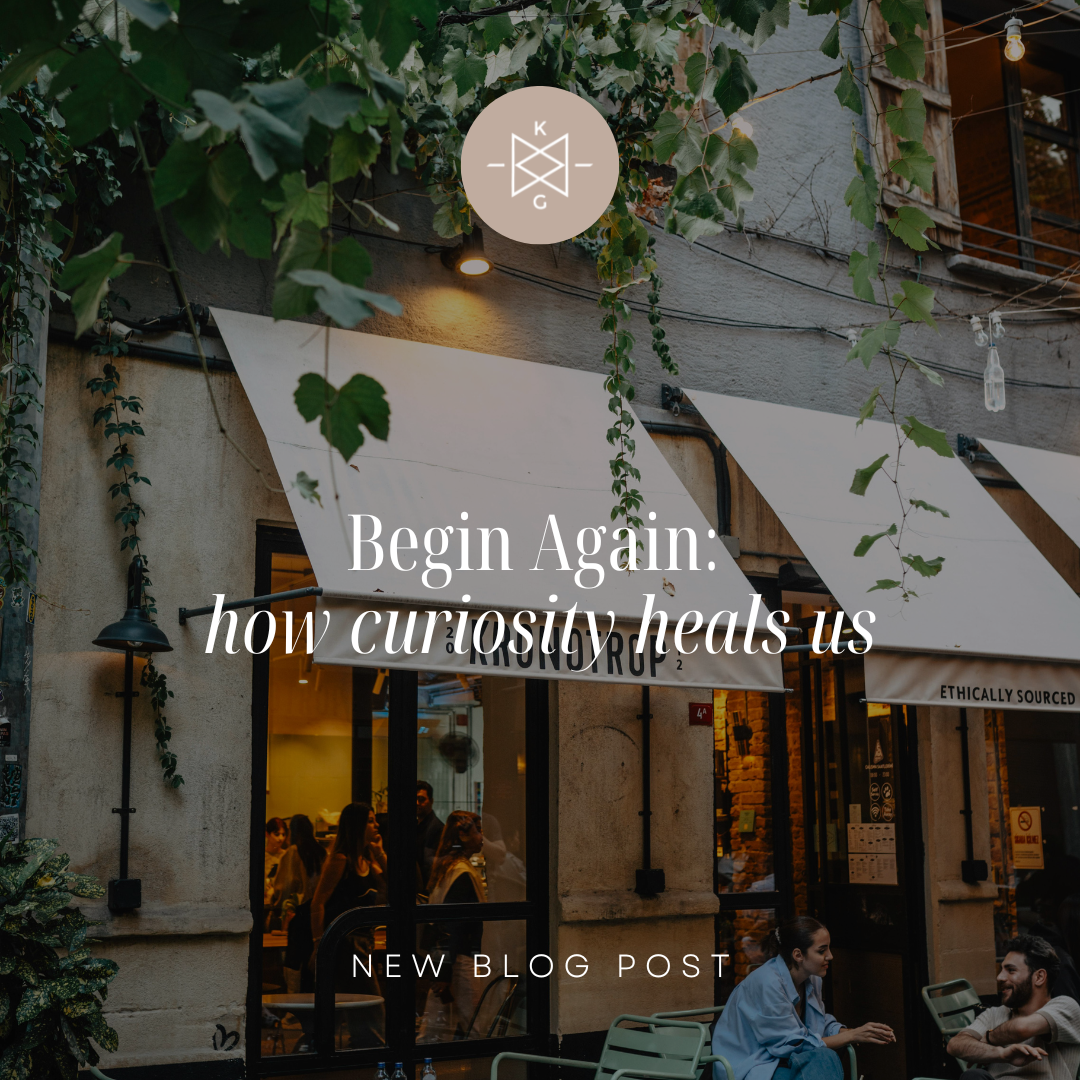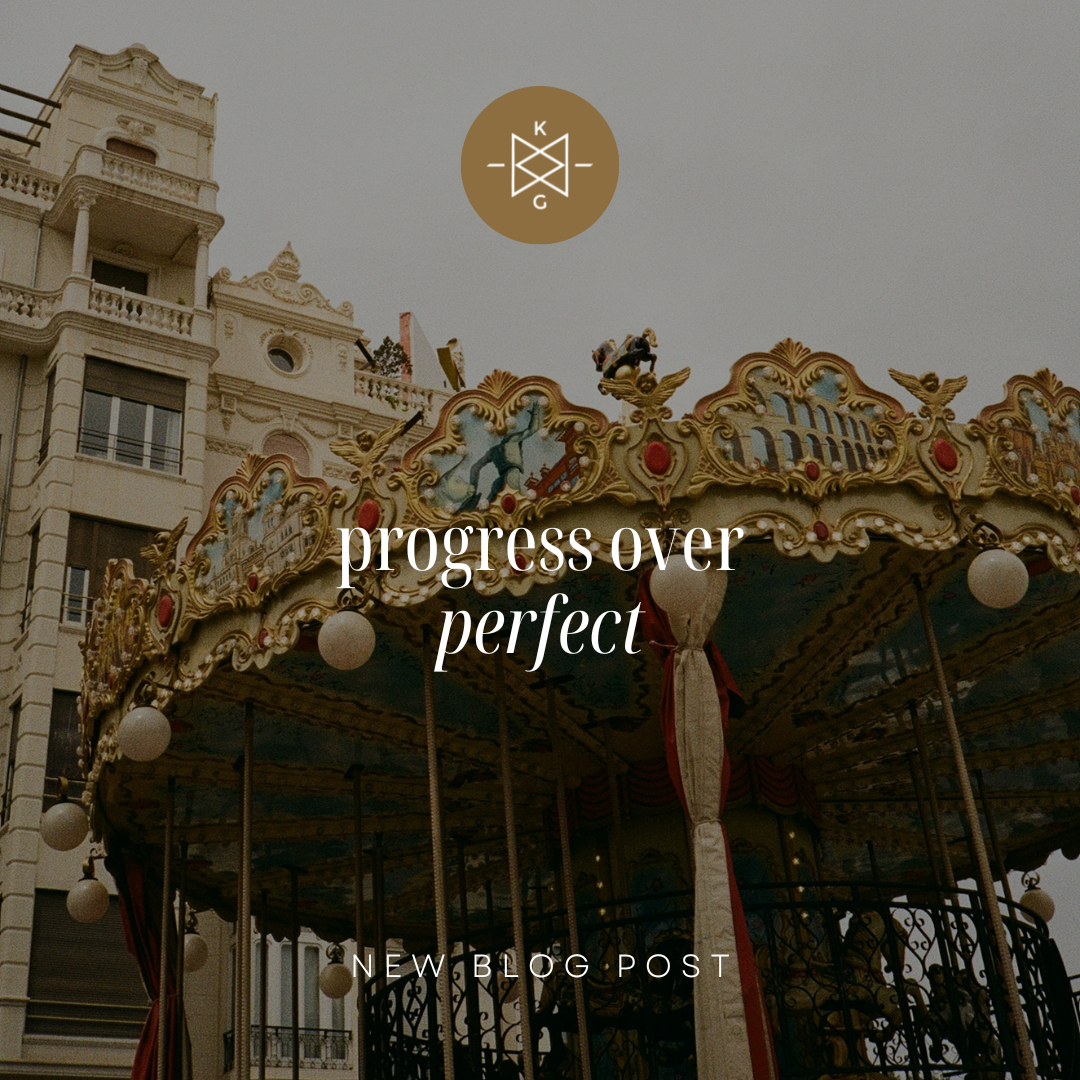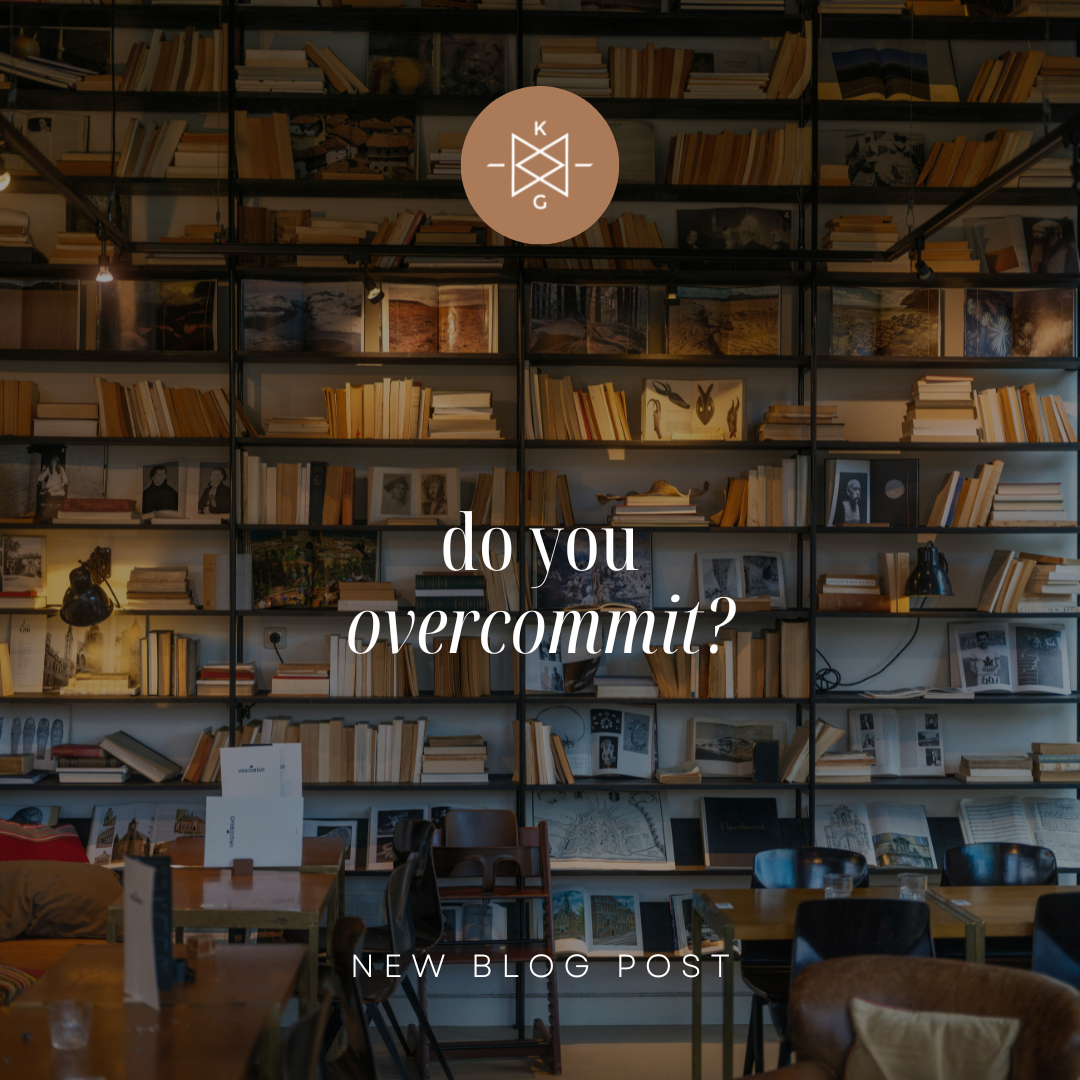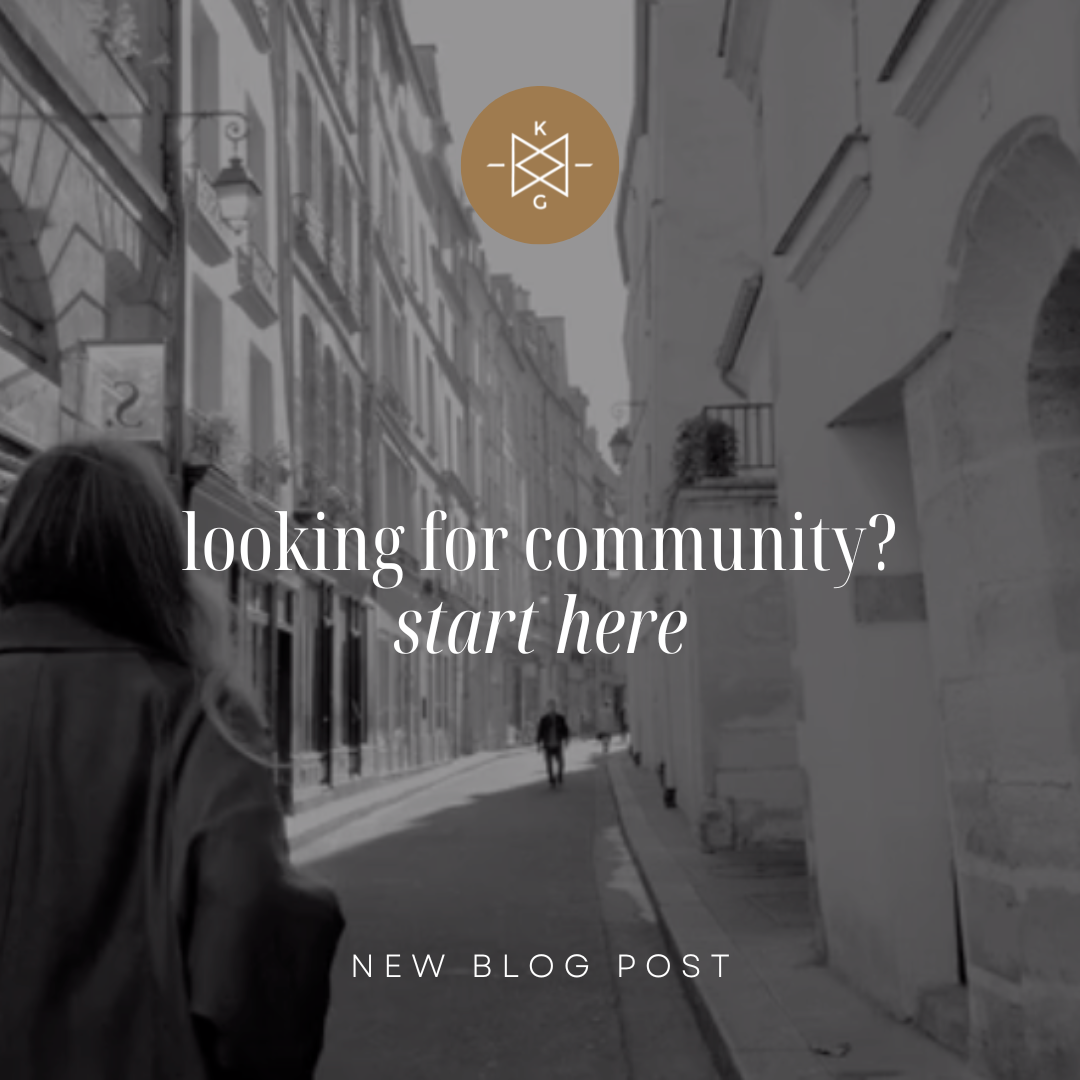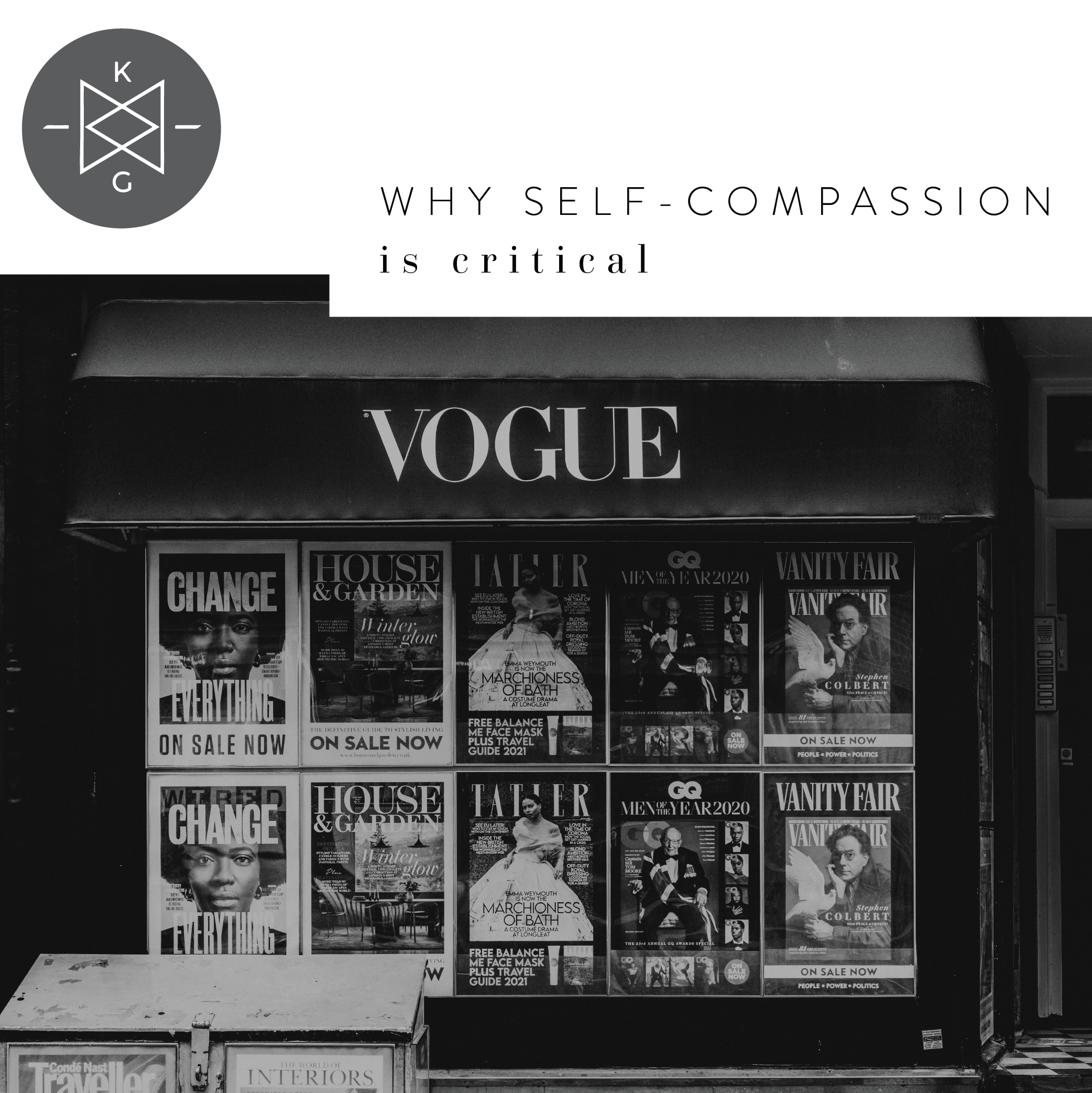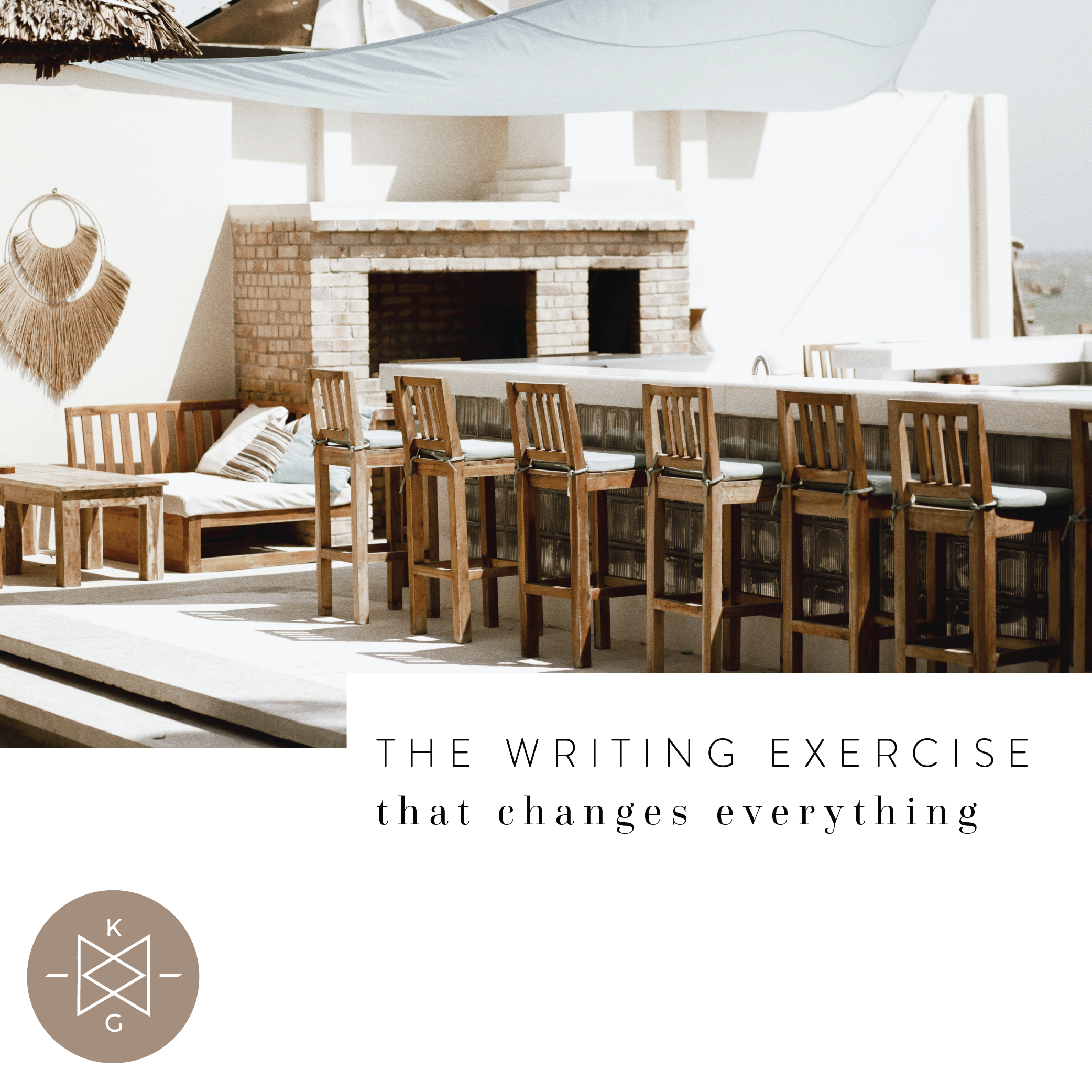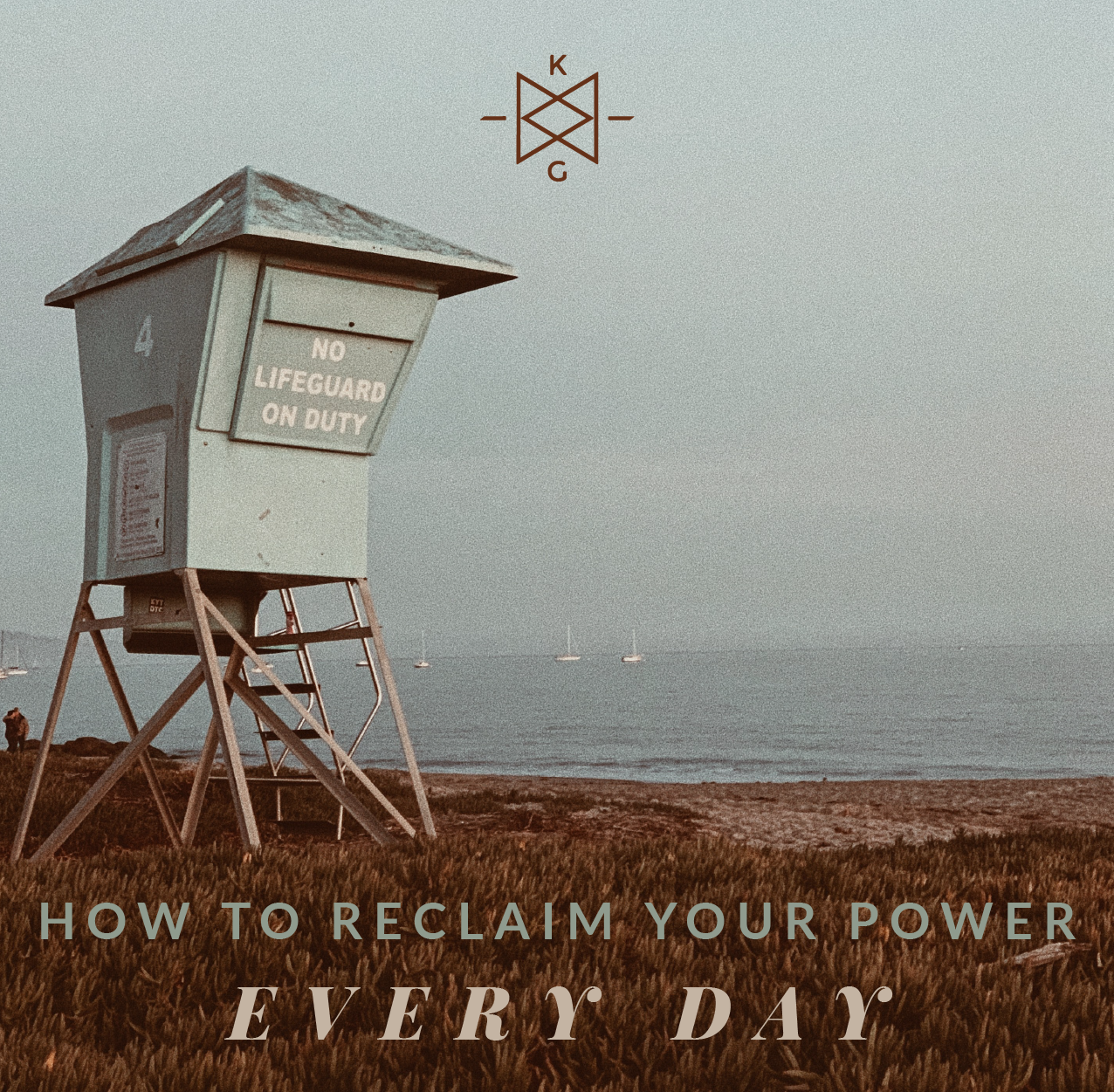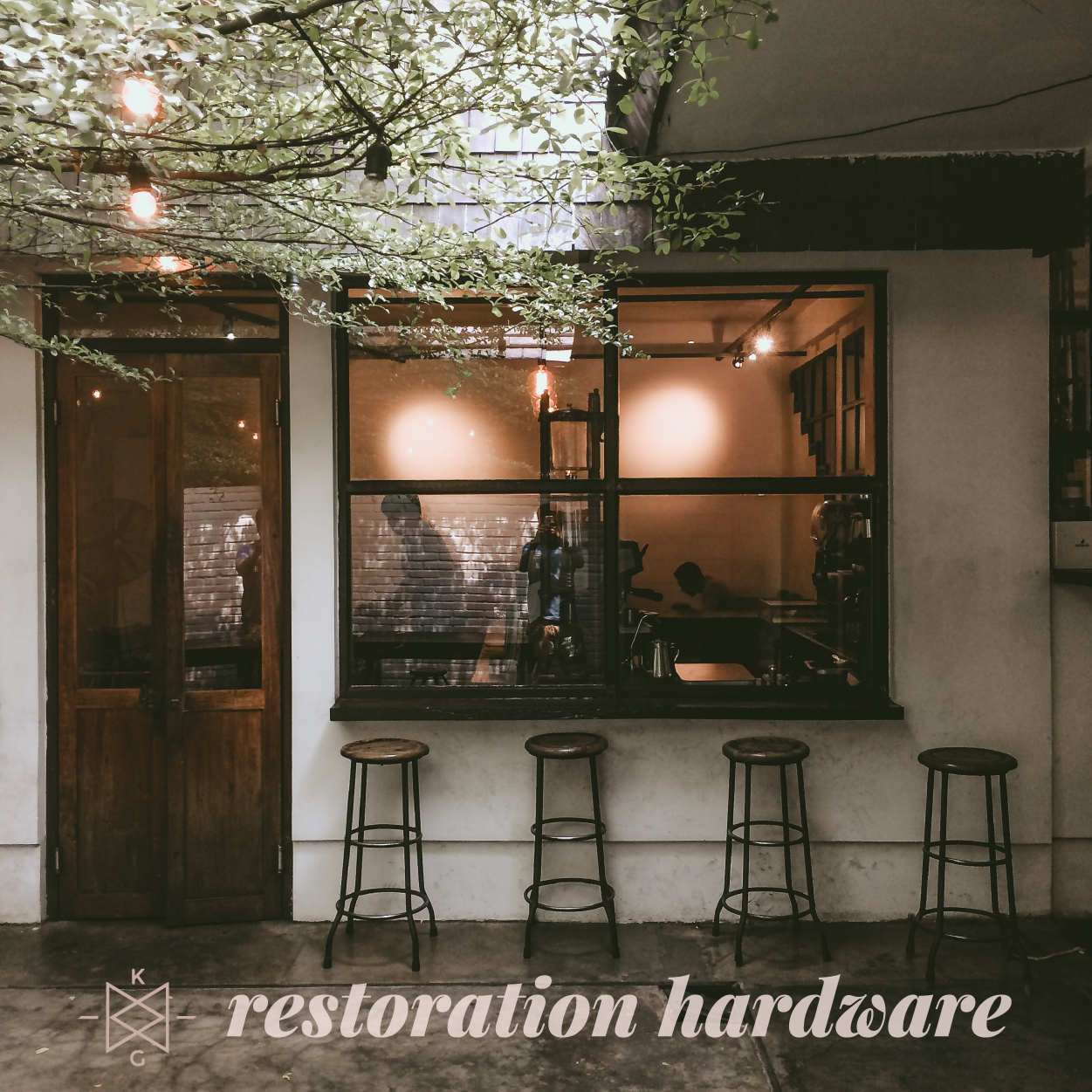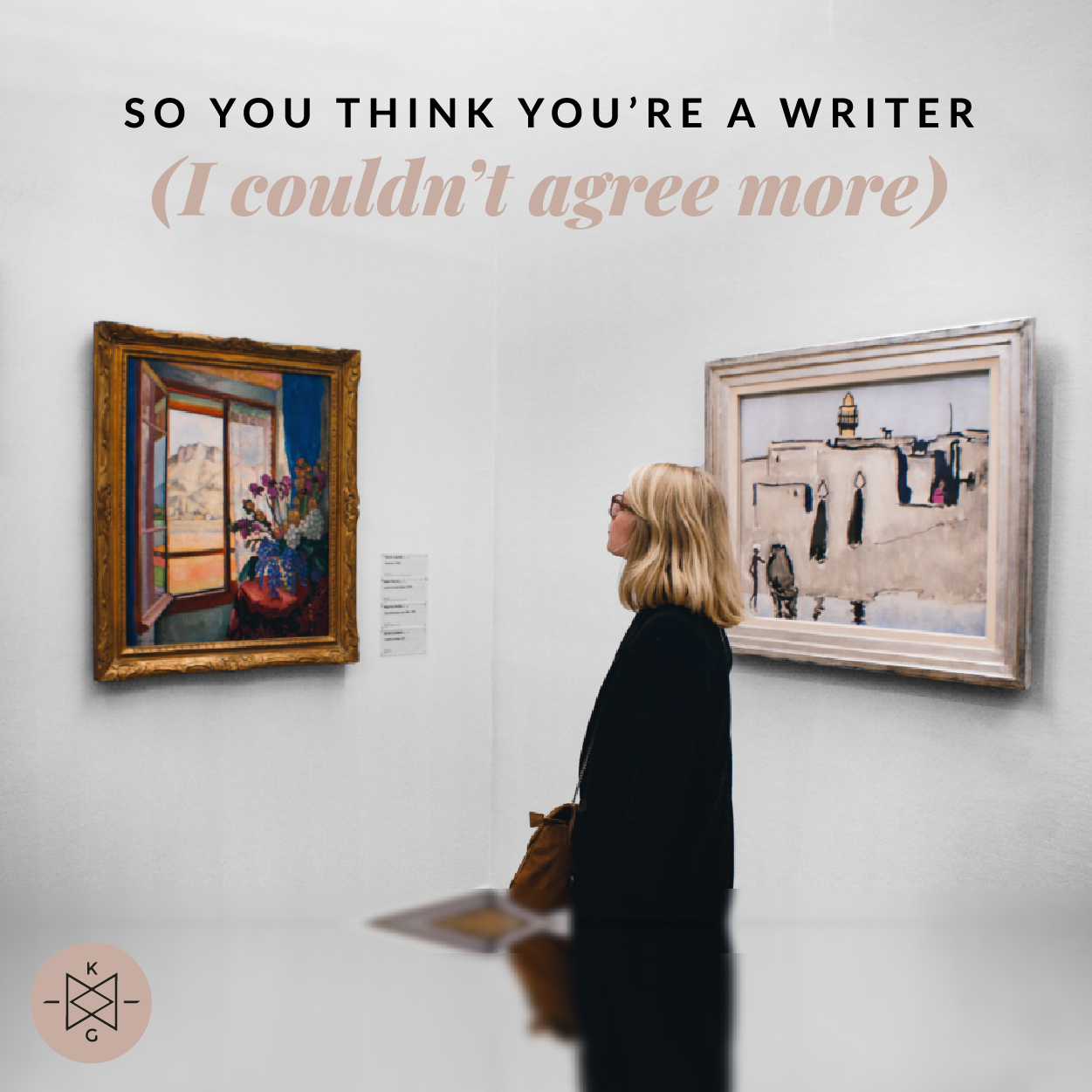
The Blog
Recently Featured
All Blogs
Why Self-Compassion is Critical
“When we give ourselves self-compassion, we are opening our hearts in a way that can transform our lives.”
- Kristin Neff
As you know, I believe self-care is crucial to not only our emotional well-being but our physical health as well. Developing a daily self-care practice is meant to help you grow and evolve over time. It’s about learning to relate to yourself with kindness and understanding, no matter what life throws at you. From that place of love and alignment, we make choices that reflect self-respect and care—choices that are life-giving and nourishing.
When I talk about self-compassion, it’s important to understand what it is as well as what it isn’t. There are so many myths about self-compassion that keep us from buying in, so I want to take a moment to bust those up.
Myth #1: Self-compassion makes us lazy or ineffective.
Wrong. Neuroscience proves that self-compassion has a motivating effect on our brain, creating the perfect petrie dish for change, learning, and resilience. Shame, rather than self-compassion, shuts down parts of the brain responsible for motivation, change, and learning.
Myth #2: Self-compassion is selfish
Wrong again. If you’ve ever flown on a plane, you’ll recall the flight attendant’s schpeel about putting on your oxygen mask before that of others. Similarly, self-compassion is one of the most loving things we can do for others because it allows us to fill our cup in order to pour out to the ones we love the most. Studies have shown that marriages where the partners practice self-compassion are much more satisfying and successful than marriages where there is self-criticism and shaming.
Myth #3: Self-compassion is irresponsible
Aaaaand….wrong. Self-compassion allows us to be with ourselves in a kind and loving way and assess any mistakes or wrongdoing we have made. From this place of compassion, we are more likely to apologize and not make the same mistake. Again, when we self-flagellate, we tend to sit in guilt and shame longer, creating more stress on the situation than when we accept what’s been done and move on to choose something more loving the next time.
So, today, I invite you to think about an area of your life where you need more self-compassion. Is there a situation that you need to extend some compassion or forgiveness to yourself?
Take a few minutes to think about this deeply and honestly. And, since so much healing can happen through writing down our thoughts, I even encourage you to write about this in your journal.
The Writing Exercise That Changes Everything
“Whatever we resist persists.”
- Carl Jung
When was the last time you wanted to confront an issue with someone but didn’t know how? Perhaps it felt too scary or threatened connection with that person? Avoiding conflict is an easy habit to fall into, especially if you’re a people pleaser like me.
And yet we know that honesty is so important. When I learned that people-pleasing was, in fact, just another form of dishonesty, I decided I needed to shift my mindset around “speaking straight,” as I like to call it.
However, there are times when honest conversation is not so helpful. The other person may not be able to give you the thoughtful response you’re looking for. In fact, it might be downright dangerous to initiate this form of transparency with the person who has caused you pain.
Whether you’re dealing with fear around confrontation or a not-so-safe situation where a clear conversation may be counterproductive, this writing exercise is a game-changer.
I’m talking about letter writing. It’s an effective and painless way to process difficult emotions or experiences you have with someone…even yourself.
The best part? You can be brutally honest, working out past or present frustrations, and mentally, emotionally, and even physically manage situations that feel overwhelming.
How does it work? You simply put everything you need to say to someone down in letter-format. You can write several drafts, starting out unfiltered and rounding it out with a bit more tact. And, you get to decide if it’s worth sending the letter or not.
This is so effective because YOU get to step into your power by saying all you need to say—for YOU. When we can let go of the outcome and make this all about processing negative feeling emotions towards another person, we take responsibility of our process and slide into the driver seat of life.
We shift from the victim to the hero of our story.
Sure, you can send the letter if you want. But again, the secret sauce is in owning your power by letting go of outcomes and taking responsibility of your experience. This exercise becomes more about a healthy way to process difficult experience and less about manipulating or fixing what’s been lost, even if you are in the right.
So, who do you need to write a letter to? What do you need closure or clearing around?
Grab a pen and some paper and let’s get to it…
How to Reclaim Your Power Every Day
“Between the stimulus and the response, there is a space. In that space, there lies your freedom and power.”
-Victor Frankl
In the wee hours of the morning in Nashville, TN, mother nature paid us a violent visit. A devastating tornado took the lives of nine people (and counting) and leveled countless homes, office buildings, and iconic landmarks.
Thankfully, my family and friends are safe and sound. However, I ache for the ones whose lives will forever be marked by an uncontrollable, unfair force on March 3, 2020.
Talk about an absolute loss of power by so many. It feels indulgent to write about reclaiming power in a space in time that looks so grim.
And yet it also feels truer than ever—this notion of responding rather than reacting.
Because if it’s not the Nashville Tornado, it’s the Coronavirus, or politics, or the stock market, or the bleak mid-winter of loneliness.
I suppose we could decide on any given day that life is just too hard, and not worth the time and effort to make sense of any of it. We could give up.
I’ve been there more times than I care to admit.
And yet I go to work every day and meet with courageous souls who long to show up for themselves and their loved ones despite the chaos spinning around them.
They are in pain, yet they don’t want to suffer. There is a difference, after all.
We will inevitably experience pain in life. Some more than others. Pain is undemocratic. It’s part of life. Suffering, on the other hand, is the story of defeat we believe about our pain. This is optional.
If you want to read a book and be transformed by a story of overcoming in the face of dire circumstances and pain, read Viktor Frankl’s, Man’s Search for Meaning. It’s the original playbook on reclaiming personal power. He survived the Holocaust and harnessed that pain to pioneer a life-giving approach to psychology called Logotherapy. It’s not about avoiding pain. It’s about finding meaning in the midst of the pain.
I had a clever blog post all planned out for you today and then changed my tune in the aftermath of this tornado.
This is what I’m reminded of today: our personal power is not contingent on our circumstances. Our personal power is contingent on the wink of a moment that separates our circumstance from our response. Our personal power lies in the ability to slow down that moment and stretch it out. The space we create in that moment is everything. It gives way to the story we will live out of moving forward.
I’m watching a pretty phenomenal story play out on the news this morning. It’s a story of community, resilience, charity, and courage.
Oh if we could bottle up this beauty and drink just a tablespoon every morning as a part of our personal narratives.
But wait…we can.
Your power is in your choice. How will you wield it today?
Love & Gratitude,
Katie
Restoration Hardware: Thoughts on Healing from a Sleepy Mom
“We humans have lost the wisdom of genuinely resting and relaxing. We worry too much. We don’t allow our bodies to heal, and we don’t allow our minds and hearts to heal.”
-Thich Nhat Hanh
How do you recover from painful experiences or seasons of struggle? Do you get lost in the hustle of “doing?” Do you get anxious and overwhelmed by the narrow path forward? Do you ever feel like the setback you now face will wreak havoc on the long game of your life and you’ll never be able to make up for lost time?
I do. One hundred percent.
Writing and exercise have been the two most important tools in my tool belt throughout my journey of recovery. They’ve been my pocket of hope and sanity to snugly retreat to when life feels out of control.
Today, at exactly five weeks postpartum, they seem like a far off luxury. My whole world turned upside down in the most delightful way with the birth of my son, and yet, I’m not sure who feels more like the infant, he or I. My existence has been boiled down to the primal steps, breaths, and sleeps of a new creature in a distant land. My identity—undoubtedly shifted from therapist-writer-coach to Executive Milk Factory Manager.
I am cranking out words on my laptop for the first time in over a month while the house is somewhat quiet—during his piecemealed nap—hoping they make a teaspoon of sense.
All of my go-to coping strategies and self-care rituals have temporarily vacated the building, just like the 12 pacifiers I seemed to misplace in the last week.
In fact, alone time is more valuable than a clever blog post, so we’ll keep this short.
In my lucid, highly-caffeinated moments, I’m struck with two opposing words: restoration & disease.
Call me dense, but I’ve never stopped to entertain the roots of those words. “Rest” for restoration and “dis-ease” for disease.
In order to experience true restoration, we must soften into rest. I’m not talking about lying down for 15 minutes checking emails and making to-do lists for the afternoon. I’m talking the deep, agenda-less, squishy kind. For all you type A personality people out there, this might sound like a living hell. I get it.
Yet, if we swing over to this opposing word: “disease,” we find a rather scary predicament. The lack of ease and rest in our bodies will actually create sickness if we don’t open windows of rest for our weary bones.
I’ve been guilty of striving my way through self-care and recovery. The temporary high of this activating energy feels good but doesn’t do the deep work that only true rest creates long term.
I’m learning to let go of the normal demands I put on myself in these young days of motherhood: the cleaning, planning, working, creating, and doing (even good doing) are on the back burner. The holy spaces of rest and odd stretches of sleep—my healing balm during this transition time—are everything.
In the long run, learning how to rest well, moment to moment, combats disease in our lives, both physically and emotionally.
Perhaps the first step is to reframe how we think of rest. It’s not lazy, a waste of time, or selfish. It's at the heart of wholehearted living. It's what allows us to approach each day from a place of worthiness.
Food for thought: what does deep, healing rest look like for you right now?
(Spoiler alert: it doesn’t have to be napping! Although it’s 9am and I’m already jonesing for one.)
Alright, my short window of productivity is over…I hear a tiny human crying in the next room.
Until next week, rest well my Dear Friend…
Love & Gratitude,
Katie
So You Think You're a Writer? (I couldn't agree more)
“Never forget, in this moment, we can change our lives. There never was a moment, and never will be, when we are without the power to change our destiny.”
-Steven Pressfield
You are creative.
I’ll take that one step further and deem you a writer…if you want to be, that is. Sure, some of us live out of that space more than others, but we’re all born with this glorious capacity to make up stories. It’s what sets us apart from animals.
Creativity, namely writing, has been a huge part of my healing journey along the way. It’s helped me step into my truest self, slowly chipping away bits of the imposter that tends to hold me back from wholehearted living.
I stole that phrase, “wholehearted living,” from Brené Brown. She defines it this way:
“Wholehearted living is about engaging in our lives from a place of worthiness. It means cultivating the courage, compassion, and connection to wake up in the morning and think, no matter what gets done and how much is left undone, I am enough. It’s going to bed at night thinking, Yes, I am imperfect and vulnerable and sometimes afraid but that doesn’t change the truth that I am worthy of love and belonging.” (p. 10, Daring Greatly).
Technicalities aside, let’s look at this invitation to live from a place of worthiness and how it ties into your destiny as a writer. (Yes, I just dropped the “d” word”).
If we are called to live beyond fear—beyond scarcity—and truly thrive, guess what? We’ve got to get creative! We get to wake up to our desires and intentionally cultivate them each day out of a place of worthiness and courage. How do we do this? I believe we do this through writing.
There is a mysterious and powerful exchange—a contract if you will—that happens between having a desire or thought and writing it down on paper that is inexplicable, yet necessary. By writing down your desires and all that surrounds them, you send a message to the universe that you are, indeed, awake and paying attention. Perhaps you are even ready to receive.
Don’t worry, there’s no pressure to get published or share it with another eyeball. This is about you and your process…not a hunt for approval.
In fact, go ahead and forget about any preconceived notions you have about being a writer. Moody, quirky, good at grammar, hangs out with deep thinkers who wear black all day at coffee shops, drinks more whiskey than Hemingway, is unstable, and makes very little money but doesn’t care.
Hogwash.
Instead, qualify the writing process two ways: imperfect and vulnerable.
Courage requires both.
Living your life fully alive does too.
I believe we actually must write. Why? Because our life and deep joy depend on it. You and I have the agency to change and write a new story about who we are and what the world is all about. We don’t have to stay in victimhood. We are called to write a new chapter constantly. This, my dear friend, is very good news.
Need a stronger nudge? Check out The War of Art, by Steven Pressfield. It’s the Holy Grail of all the books I’ve read on the creative process. I discovered this book on a visit to NYC back in 2005. Despite being a slow reader and met by all the zippy distractions of the city, I managed to devour the bulk of this book on a park bench somewhere in the West Village one highly-caffeinated afternoon. Thank me later…
Okay, I’ll leave you with a journaling prompt:
If failure was not an option, one thing I’d love to do is .
Love & Gratitude,
Katie
P.S. Stay tuned for a very special Writing, Enneagram, and Yoga event coming in Feb. 2020! Details on that dropping any day now.
